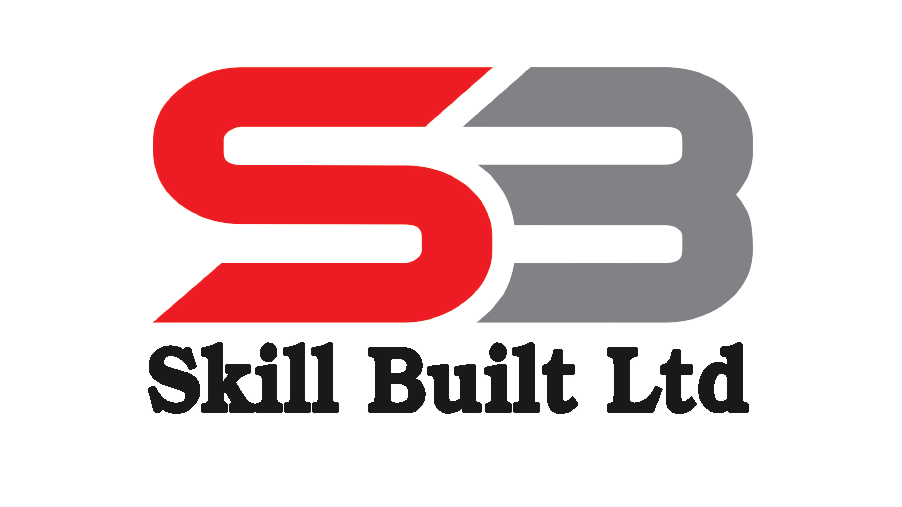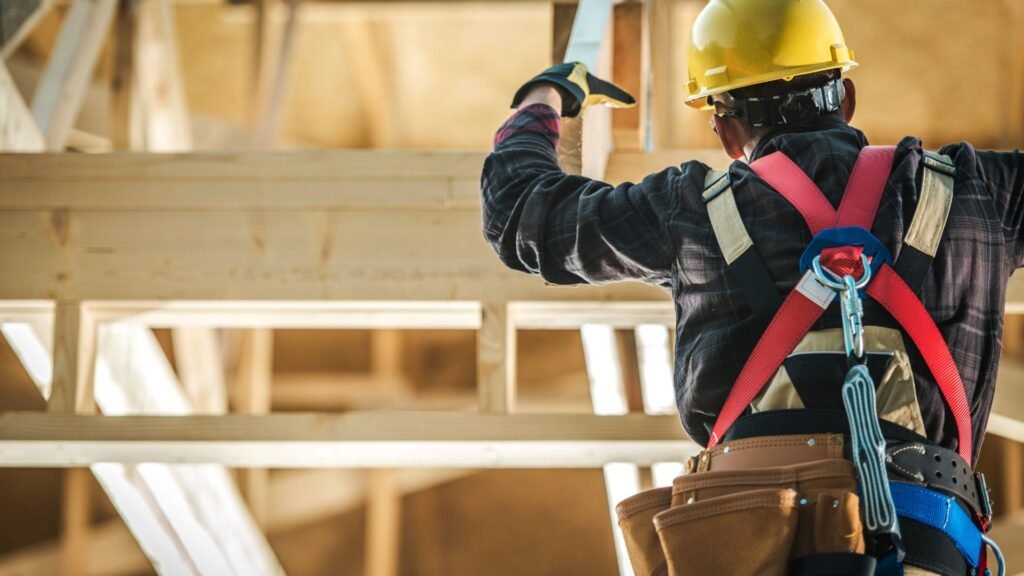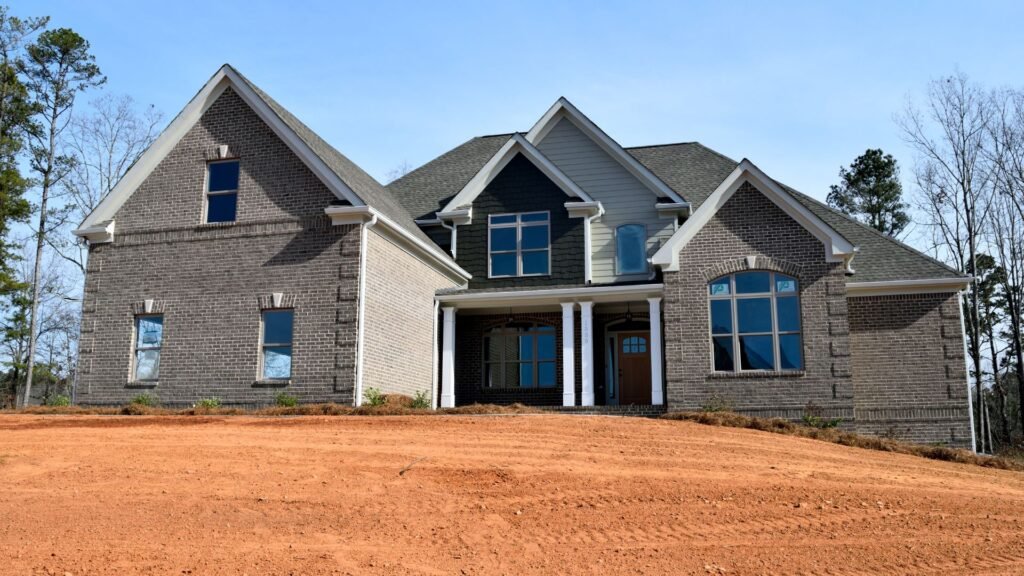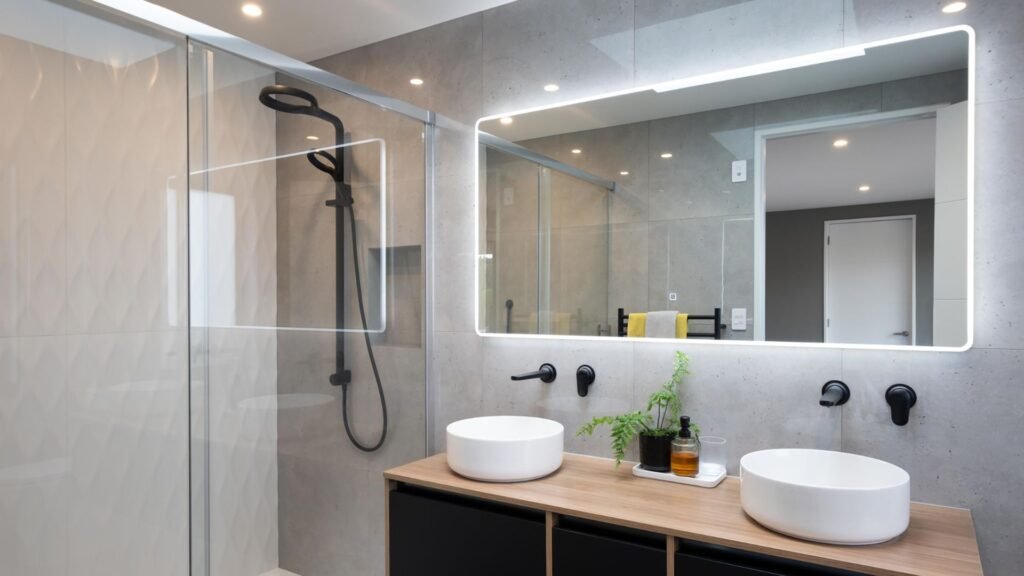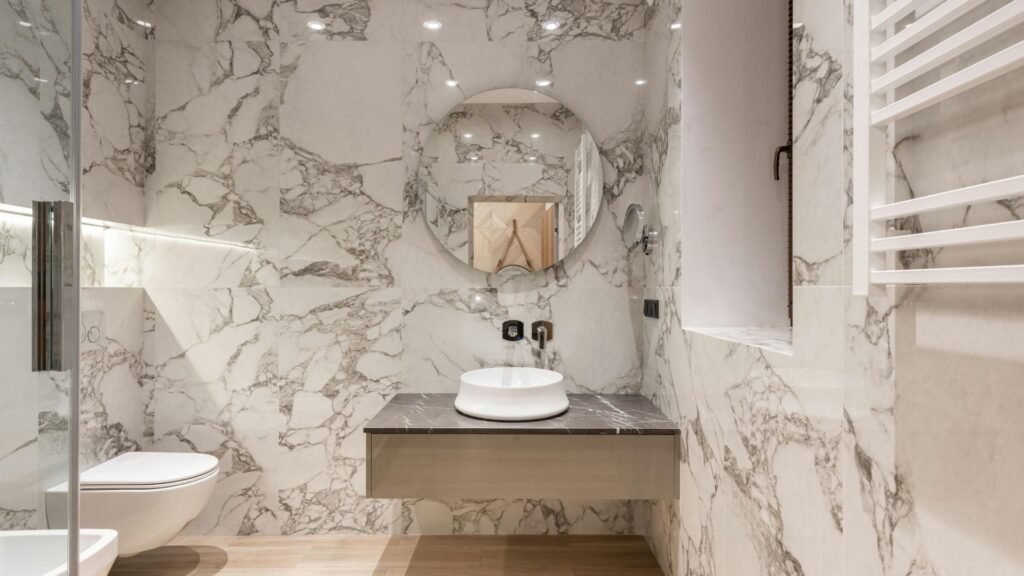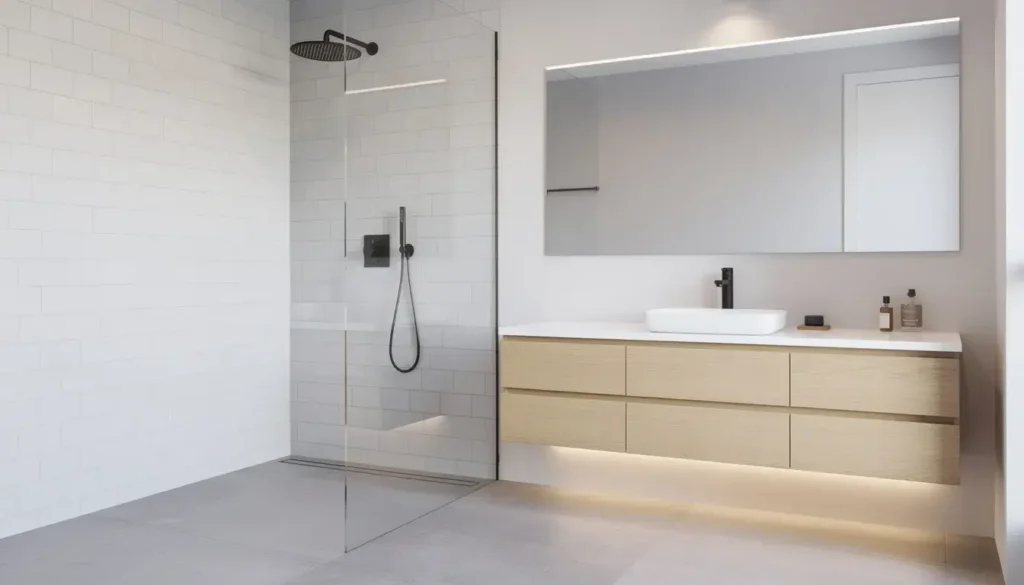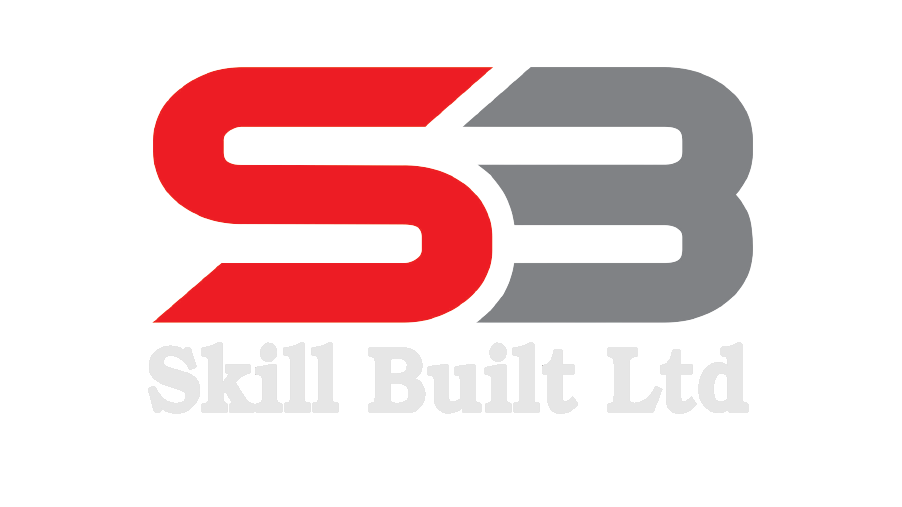Welcome to your go-to guide for checking a builder’s credentials in New Zealand. Whether you’re building from scratch, renovating your home, or just planning ahead, making sure your builder is qualified and trustworthy is one step you can’t afford to skip. Too many Kiwis get caught out by builders who lack proper licensing, deliver poor workmanship, or vanish when things go wrong. In this post, you’ll learn exactly how to verify a builder’s LBP status, check reviews, ask the right questions, and spot red flags, so you can protect your time, money, and home from costly mistakes.
To check a builder’s credentials in NZ, search their name or license number on the Licensed Building Practitioner (LBP) Register. This shows their license type, status, and any disciplinary history. You should also verify memberships with trade groups like Master Builders, read online reviews, and request references to ensure they’re qualified and trustworthy.
Table of Contents
Why You Should Always Check A Builder’s Credentials
Hiring a builder is one of the biggest decisions you’ll make when taking on any construction or renovation project in New Zealand. Whether you’re building a new home, adding an extension, or renovating a kitchen, you’re making a significant financial and emotional investment. That’s why checking a builder’s credentials is not just a smart move, it’s a necessary one.
First, protecting your investment should be your top priority. Homes in NZ aren’t cheap. A poorly executed build can lead to thousands in repairs, unsafe structures, or issues that affect resale value. Verifying a builder’s qualifications, license, and work history helps you avoid handing your hard-earned money to someone who may not be up to standard.
Second, failing to check credentials opens the door to dodgy work, lengthy project delays, and even legal disputes. Builders who aren’t qualified often cut corners, ignore building codes, or vanish midway through a job. That kind of stress isn’t worth it, especially when most of these risks can be reduced by taking a few minutes to verify who you’re dealing with.
Third, as a client, you have rights under New Zealand building law. The Building Act 2004 and related regulations protect consumers by requiring certain work to be done by Licensed Building Practitioners (LBPs). If your builder isn’t properly licensed and something goes wrong, you may have little legal ground to stand on. Always make sure your builder is authorised to carry out restricted building work.
To bring this into perspective, imagine a situation where a homeowner hired a builder without checking their license. The builder started the work, used substandard materials, and left before the job was complete. The homeowner couldn’t pursue a proper complaint because there was no written contract, and the builder wasn’t an LBP. This kind of situation happens more often than you’d expect, and it’s preventable.
By taking the time to confirm a builder’s credentials, you save yourself from unnecessary risks, expenses, and headaches. It’s not about being overly cautious, it’s about being informed, prepared, and confident in the people you trust with your home.
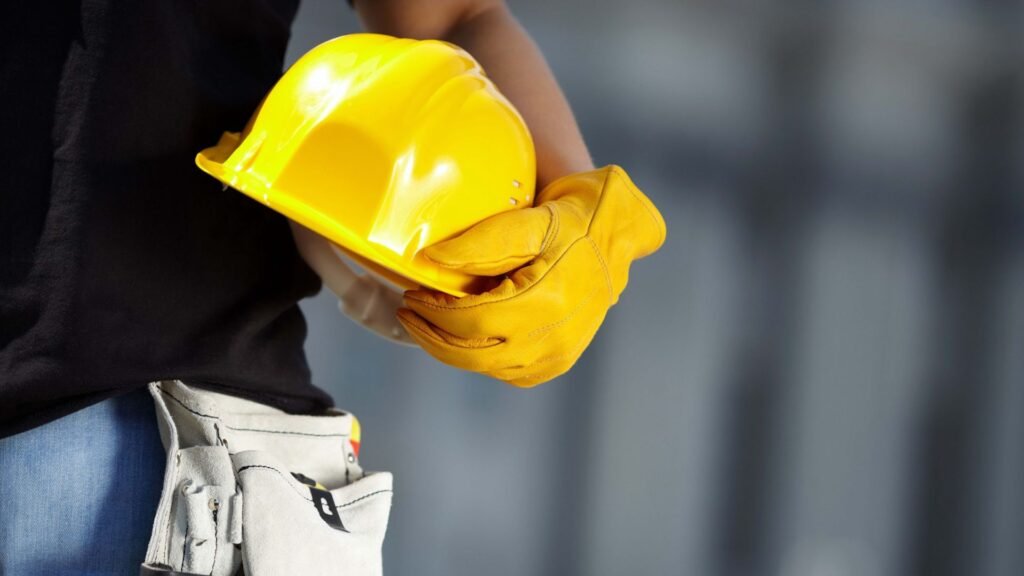
What Credentials Should A Licensed Builder Have In NZ?
Before hiring any builder in New Zealand, it’s essential to understand the specific credentials they should have. These credentials prove that the builder is qualified, trained, and authorized to carry out certain types of work. If you’re planning a home build or renovation, checking for these credentials isn’t just a formality, it’s your protection against poor workmanship, legal issues, and unexpected costs down the track.
Licensed Building Practitioner (LBP) Registration
In New Zealand, anyone carrying out or supervising restricted building work (RBW), like structural framing, roofing, or foundations, must be a Licensed Building Practitioner (LBP). This system is regulated by the Ministry of Business, Innovation and Employment (MBIE). An LBP has been assessed by the Building Practitioners Board and meets a standard level of skill and competence. You can check their license status on the official LBP Register, where you’ll see their license class, expiry date, and any disciplinary history. If a builder claims to be licensed but isn’t on the register, that’s a red flag.
Qualifications: NZQA-Accredited Training Or Industry Certifications
While not legally required for all types of building work, having a qualification from the New Zealand Qualifications Authority (NZQA) shows that a builder has completed formal training. This might include a National Certificate in Carpentry or similar trade-related programs. Industry certifications from recognized training bodies also boost a builder’s credibility. These credentials demonstrate that they’ve gained practical and theoretical knowledge, not just picked up skills on the job.
Trade Memberships: Master Builders Or Certified Builders
Look for builders who are members of organizations like the Registered Master Builders Association or New Zealand Certified Builders (NZCB). These memberships aren’t handed out freely. They usually require proof of qualifications, financial stability, and a history of good workmanship. Members often offer workmanship guarantees, giving you extra peace of mind if something goes wrong. While not a replacement for an LBP license, these affiliations show that a builder takes their profession seriously and is held to a higher standard.
Building Consents And Council Approvals
Although building consents and council approvals aren’t technically builder credentials, they’re tightly linked to the builder’s professionalism. Any licensed builder should be familiar with the local council’s requirements and be able to guide you through the consent process. If a builder tries to avoid getting consent or downplays its importance, it’s a serious warning sign. Skipping consents may result in unsafe work, fines, or problems when selling your property later.
Hiring a builder without the proper credentials puts your project, and your finances, at risk. Always take the time to verify their LBP status, ask about qualifications, check memberships, and ensure they follow the correct legal processes. It’s not just about ticking boxes, it’s about protecting your home and your future.
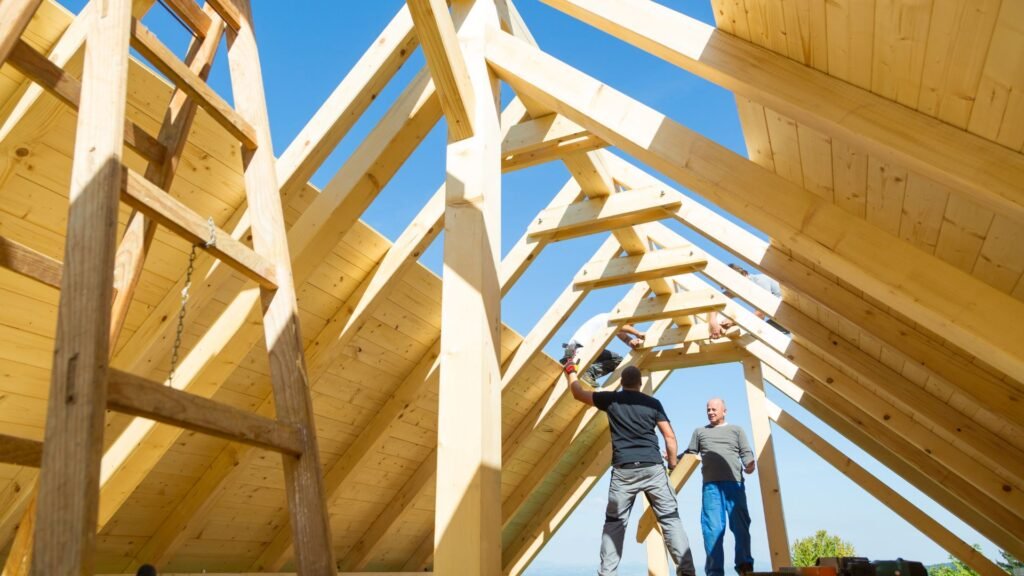
How To Check A Builder’s LBP Status
Before hiring any builder in New Zealand, one of the most important steps is confirming whether they are officially licensed. This helps protect your investment and ensures the person working on your home meets New Zealand’s building standards. The best way to do this is by checking the Licensed Building Practitioner (LBP) Register, which is managed by the Ministry of Business, Innovation and Employment (MBIE).
Start by visiting the LBP Register. This public tool allows you to search for any builder by their full name or license number. If the builder is legally registered, their details will appear instantly. The search is quick and free to use, making it one of the easiest ways to verify credentials before signing a contract or paying a deposit.
Once you’ve found their profile, look at the key details shown. You’ll see their license class, which tells you what kind of work they’re qualified to do. For example, they might be licensed in carpentry, site management, or design. Make sure their license matches the type of work you’re hiring them for. Some builders may have more than one class, which can be useful for larger projects.
Also check the expiry date of the license. LBP licenses must be renewed regularly, so if their license has expired, they are technically not allowed to carry out restricted building work. Hiring someone with an expired license can create legal problems, especially if you’re applying for council consent or insurance coverage.
The register also displays disciplinary history if the builder has had complaints upheld against them. This is an important step that many people skip. If there’s a record of repeated issues, it may be safer to consider other options. A clean record, on the other hand, helps build trust.
If the builder’s name doesn’t appear at all, or their license is expired, take it as a red flag. It may mean they were never licensed, or they’ve been removed from the register due to complaints or non-compliance. In that case, ask them directly or move on to someone else. Never proceed with a builder who can’t prove they’re currently licensed.
Checking a builder’s LBP status takes just a few minutes, but it can save you thousands of dollars and a lot of stress. Always make this step part of your hiring process, it’s your right to know who’s working on your home.
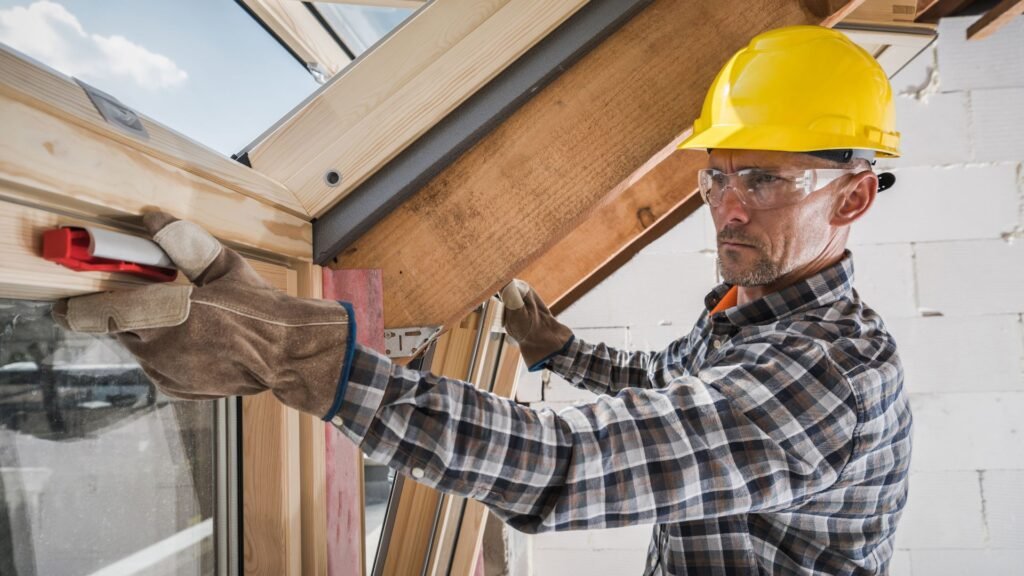
Other Ways To Check A Builder’s Background
Beyond checking the Licensed Building Practitioner (LBP) Register, there are several other reliable ways to research a builder’s background in New Zealand. These methods can help you avoid unqualified or dishonest builders and give you more confidence before signing a contract. Verifying a builder’s experience, reputation, and professionalism takes only a few extra steps, but it can save you from serious problems later.
Look For Memberships In Trusted Industry Groups
In New Zealand, many reputable builders belong to professional trade associations such as the Registered Master Builders Association or the New Zealand Certified Builders Association. These groups require members to meet strict standards, including experience, qualifications, and financial stability.
Memberships like these aren’t just logos, they signal that a builder takes their work seriously and follows industry best practices. You can verify a builder’s membership by visiting the official websites of these associations and searching for the builder’s name. If they claim to be a member but don’t show up on the list, it’s a red flag.
Ask For References And Portfolio
A trustworthy builder should be happy to share a list of past clients and examples of recent projects. When speaking with previous clients, ask specific questions such as:
- Was the job completed on time and within budget?
- How was the communication throughout the project?
- Were there any issues or surprises?
- Would you hire this builder again?
Also, ask to see photos or visit a completed project if possible. Look for consistency, quality of finish, and attention to detail. Be cautious if a builder refuses to provide references or only shows generic stock photos, this often signals poor or nonexistent past work.
Read Online Reviews
Online reviews are a quick way to learn how a builder treats clients and handles projects. Popular platforms in New Zealand include:
- Google Reviews
- NoCowboys
- Builderscrack
When reading reviews, pay attention to patterns rather than one-off complaints. A few negative reviews can be normal, but repeated issues, like missed deadlines or poor workmanship, should raise concern. Also, watch out for fake reviews. If the feedback sounds overly promotional, vague, or all posted within a short time, it might not be genuine.
Search Their Company Name On The Companies Register
The New Zealand Companies Register provides basic legal and financial information about any registered business. Search the builder’s company name at companies-register.companiesoffice.govt.nz to:
- Confirm they are a legitimate business
- Check their trading status (active or removed)
- See when the business was registered
- Find the names of directors or shareholders
If the business doesn’t appear, is recently registered, or shows signs of legal trouble, that’s a sign to dig deeper or look elsewhere.
Use The Disciplinary Decisions Register
The Building Practitioners Board maintains a public Disciplinary Decisions Register, which lists formal complaints or rulings against builders. If a builder has been involved in serious misconduct, such as breaking building regulations or failing to meet professional standards, it will be recorded here.
You can access the register at building.govt.nz. Use this tool to check whether the builder has any history of warnings, fines, or suspensions. If they do, ask them to explain what happened and how they resolved it. If they deny or dodge the question, that’s a major warning sign.
By taking the time to follow these steps, you’re not just protecting your investment, you’re making sure your project runs smoothly from start to finish. Every trustworthy builder should be able to pass these checks without hesitation.
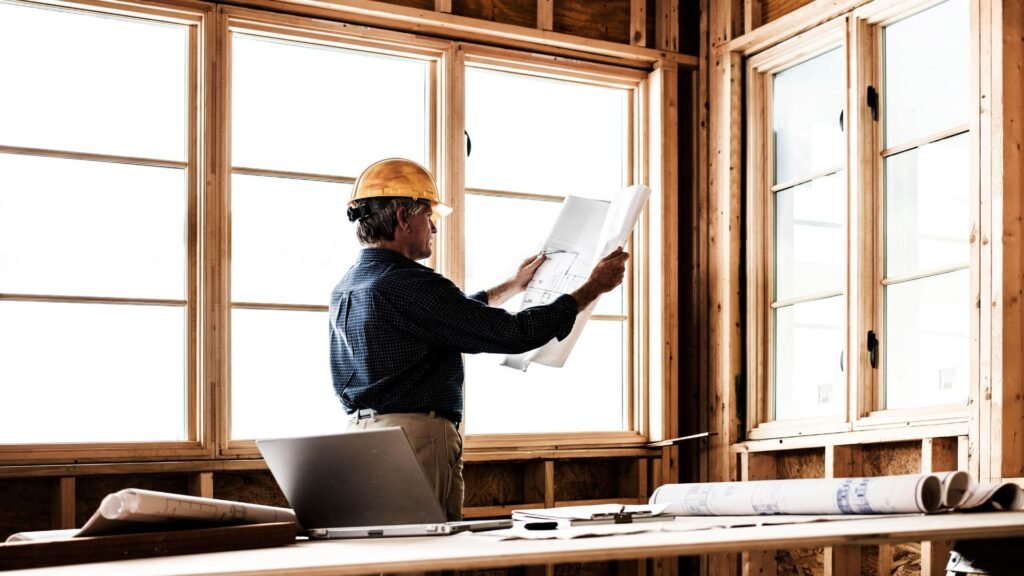
Red Flags To Watch Out For
Hiring a builder is a big decision, and spotting red flags early can save you from stress, budget blowouts, and legal trouble. While most builders in New Zealand do honest work, some cut corners or operate without the proper qualifications. Here are key warning signs to look for before you sign a contract or hand over any money.
A builder who avoids giving written contracts should immediately raise concerns. In New Zealand, written agreements are a legal requirement for residential building work over $30,000. A proper contract protects both parties by clearly outlining the scope of work, payment terms, timelines, and responsibilities. If a builder insists on working without one, it could mean they don’t want to be held accountable or plan to change the terms later without warning.
No proof of an LBP (Licensed Building Practitioner) license is another major red flag. All builders carrying out restricted building work, such as structural or weathertight work, must be licensed. You can easily verify this by checking the Licensed Building Practitioner Register online. If they can’t show a valid license or give vague excuses, walk away. Hiring an unlicensed builder puts your entire project, and its compliance with building codes, at risk.
Be cautious of builders who demand large cash payments upfront. While some deposit is normal, large or full prepayments are not. A common scam tactic is to collect money and disappear without completing the job. Always use staged payments linked to specific milestones in the project, and get receipts for every transaction.
Vague answers about past work should also make you pause. A professional builder will gladly share past projects, client testimonials, or references. If someone avoids giving clear answers, dodges questions, or makes excuses for not having a portfolio, it’s often because they have something to hide. Take the time to do your research and verify any claims.
Lastly, if a builder pushes you to skip council approval or building consent, that’s a serious issue. This is more than just a red flag, it’s potentially illegal. Council approval exists to ensure the work meets safety and building standards. Skipping this process may lead to fines, demolitions, or future legal disputes. Always make sure your builder follows the correct legal process, and never agree to work that bypasses official checks.
Being aware of these red flags helps you make informed choices and protect your investment. Trust your instincts, but back them up with checks, questions, and documentation. If something feels off, it probably is. Choose a builder who values transparency, professionalism, and compliance from the start.
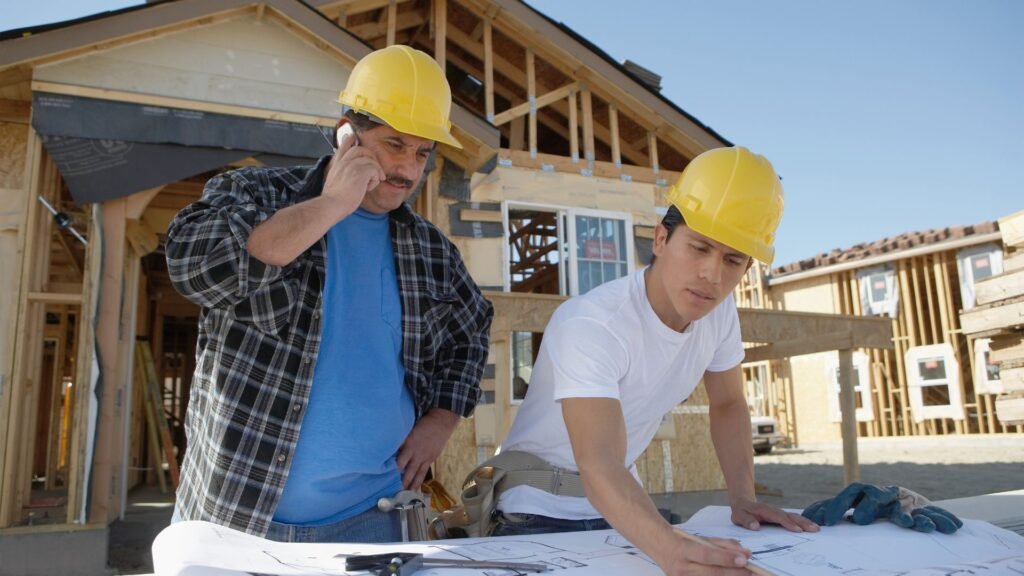
What To Do If You Suspect A Builder Is Unqualified Or Dishonest
Hiring a builder is a big decision, and when something doesn’t feel right, it’s important to act quickly. If you suspect a builder in New Zealand is unqualified, dishonest, or trying to cut corners, taking the right steps early can protect your home, your money, and your peace of mind.
First, stop all planned work immediately. If you haven’t started yet, don’t proceed with signing contracts, paying deposits, or giving access to your property. Continuing with an unlicensed or dishonest builder increases the risk of poor workmanship, legal disputes, or non-compliant construction that can affect your ability to get council sign-off.
Next, report the issue to the Ministry of Business, Innovation and Employment (MBIE) or the Building Practitioners Board (BPB). If the builder claims to be a Licensed Building Practitioner (LBP), you can search their credentials through the official LBP Register and submit a complaint directly if something seems off. The BPB investigates complaints related to poor performance, unethical conduct, or work done without the right license. Reporting these cases helps stop bad builders from continuing unsafe practices with other clients.
You can also file a complaint using the official MBIE complaints process. This involves providing documentation, such as contracts, emails, or proof of work quality. While the process might take time, it’s the correct legal pathway for holding builders accountable. It also creates a formal record that could support any future legal action or claims.
If the builder has already started work, notify your local council as soon as possible. Unlicensed or non-compliant construction may violate local building regulations and could put your property at risk of stop-work notices, penalties, or demolition orders. Council building inspectors can step in to assess the work and take enforcement action if necessary.
Trust your instincts. If a builder’s behavior raises red flags, like asking for large cash payments, refusing to show proof of their license, or avoiding contracts, take it seriously. Walking away early may feel inconvenient, but it’s far better than dealing with a botched build or legal battle later on. Always prioritise your legal rights, your safety, and the quality of your investment.
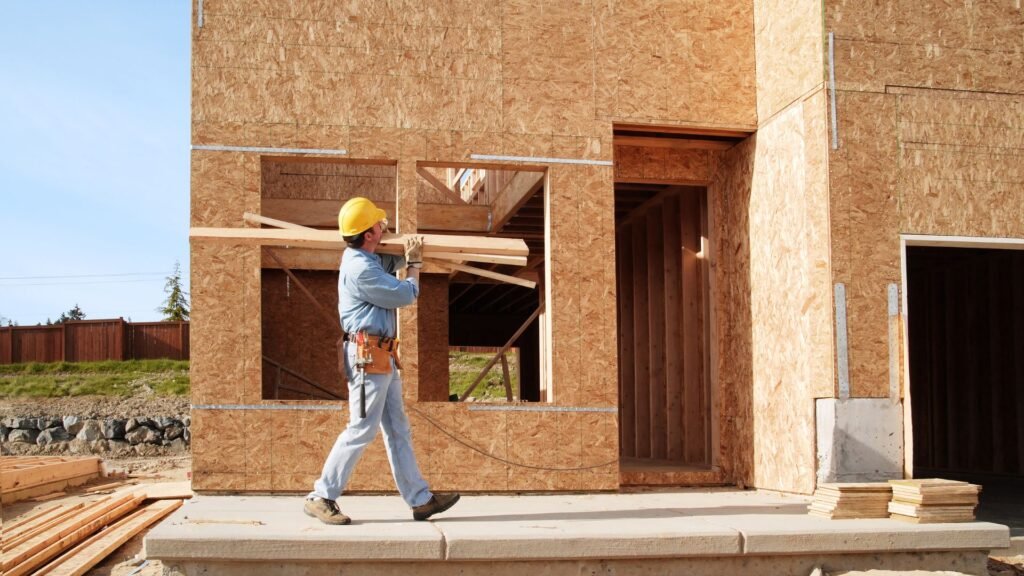
Final Tips For Hiring A Trustworthy Builder
Hiring the right builder in New Zealand can make or break your project. Whether you’re building a new home or planning a renovation, choosing someone you can trust is just as important as the materials used. Here are four final tips to help you make the best possible decision, based on real experience, common sense, and industry best practices.
- Always Check Credentials Before Signing Anything
Before you commit to any builder, confirm they hold a current Licensed Building Practitioner (LBP) license. You can do this easily by searching their name or license number on the LBP register. Also, check for trade memberships like Master Builders or Certified Builders. Ask for proof if you’re unsure. A trustworthy builder won’t hesitate to share their qualifications, insurance documents, and references. Skipping this step puts your money, home, and peace of mind at risk. - Get 3 Quotes And Compare
Never settle for the first quote you receive. Reach out to at least three builders and ask each one for a detailed, itemised quote. This lets you compare pricing, timelines, materials, and how each builder communicates. Look for clarity, not just the lowest price. A suspiciously cheap quote can be a red flag. Use the quotes to ask smart questions and gauge how transparent and professional each builder is. - Never Rush , Due Diligence Saves Money And Stress
It’s tempting to move fast, especially if you’re excited or facing time pressure. But rushing often leads to poor decisions and unexpected problems. Take time to check credentials, read reviews, contact references, and understand the contract. Doing your homework upfront can save you from budget blowouts, legal headaches, and unfinished work later. A solid builder will respect your need to take things slow. - Trust Your Gut, But Verify With Facts
Sometimes something feels off, and you should listen to that. If a builder dodges questions, seems pushy, or offers vague answers, take it seriously. But don’t rely on instinct alone. Always follow up with facts. Look them up on official registers, review their past projects, and talk to previous clients. Your gut is a good first filter, but facts should always back up your final decision.
Hiring a builder doesn’t have to be risky. When you take the time to check credentials, compare quotes, and ask the right questions, you’re far more likely to end up with a result you’re proud of and a process that runs smoothly from start to finish.
Ready to start your building project with confidence? Visit our homepage to connect with verified, trustworthy builders across New Zealand.
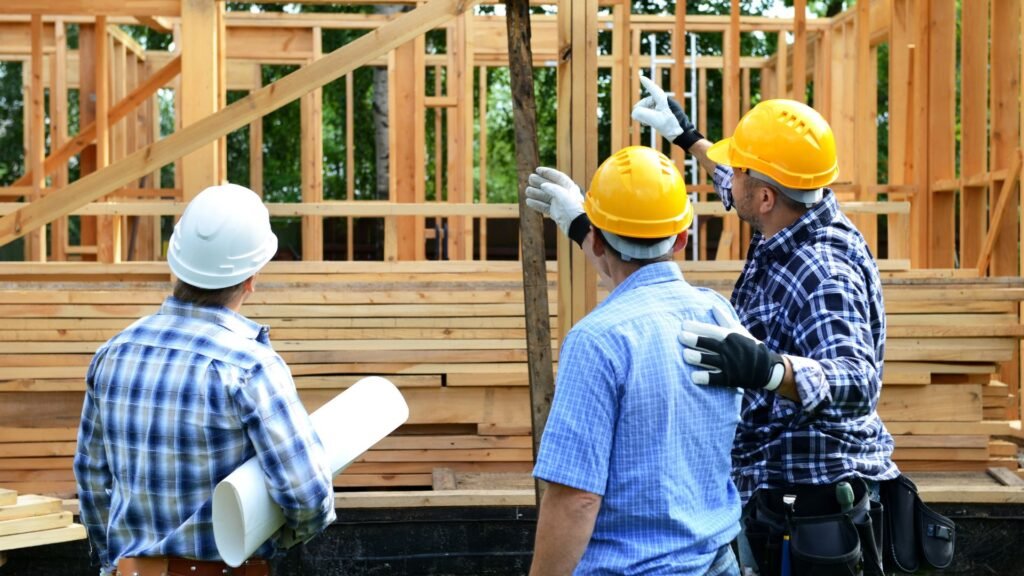
FAQs: About How To Check Builders’ Credentials In NZ
How do I check a builder’s credentials in NZ?
Use the Licensed Building Practitioner (LBP) Register at lbp.building.govt.nz. Search by name or license number to verify if the builder holds a current license and to see their license class and disciplinary history.
What is an LBP, and why does it matter?
An LBP (Licensed Building Practitioner) is a builder approved by the New Zealand Government to carry out or supervise certain types of restricted building work. Hiring an LBP ensures the builder meets industry standards and legal requirements.
Can I legally hire a builder who isn’t licensed?
Yes, for non-restricted work. But for restricted building work (like structural or weather-tightness work on homes), only LBPs can legally carry it out or supervise it.
Where else can I verify a builder’s background?
Check memberships with trade associations like Master Builders or Certified Builders, read online reviews, request client references, and search the Companies Register for business status.
What are signs that a builder might not be qualified?
Red flags include no license number, refusal to show documents, unwillingness to sign a contract, vague answers about past work, and large cash-only payment requests.
What should I ask a builder before hiring them?
Ask for their LBP number, proof of insurance, references, how they handle permits and inspections, and who will be doing the actual work on-site.
Are all licensed builders also members of trade associations?
No. Trade association membership is optional. However, builders who are members of groups like Master Builders often follow stricter codes of conduct and offer additional guarantees.
How do I check if a builder has complaints or disciplinary action?
Use the Disciplinary Decisions Register on the Building Practitioners Board website. It lists outcomes of complaints against licensed builders in NZ.
What happens if I hire an unlicensed builder for restricted work?
Your build may fail inspection, be non-compliant with NZ law, or void your insurance. You may also face fines or have trouble selling the property later.
Can I report a builder who is dishonest or unlicensed?
Yes. You can file a complaint with the Building Practitioners Board or contact your local council if unapproved work is underway. Keep all evidence and communication for your records.
Conclusion
Checking a builder’s credentials in New Zealand isn’t just a formality, it’s one of the smartest decisions you can make before starting any construction or renovation project. Verifying licenses, reading reviews, asking the right questions, and using official registers like the LBP helps you avoid poor workmanship, financial loss, and long-term headaches. Every step you take to confirm a builder’s qualifications brings you closer to a smoother, safer building experience. If you’re serious about protecting your investment and ensuring your project is completed to a high standard, follow the steps outlined above and make them part of your hiring process. In the end, choosing a qualified, trustworthy builder gives you something money can’t buy: peace of mind.
